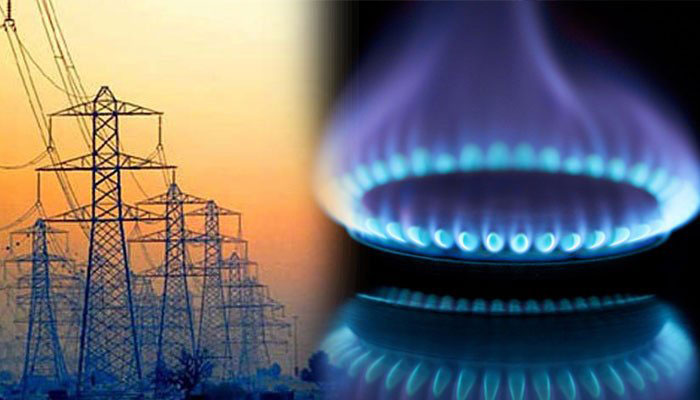Govt to raise power, gas tariffs in phases
ISLAMABAD: The government said Wednesday said the power and gas tariffs would be raised in phases, not in one go, over the next few years amid the COVID-19 crisis.
This was stated by Minister for Information and Broadcasting Shibli Faraz and Special Assistant to PM (SAPM) on Petroleum Nadeem Babar while talking to the media here said. They said the previous government did not increase the overdue gas and power tariffs so as not to pay its ‘political cost’ and consequently the country’s circular debt ballooned.
Shibli Faraz said that due to previous governments’ expensive power agreements, the circular debt increased. They did not streamline the transmission and distribution network. Moreover, they did not encourage new renewable energy projects.
Shibli added the government has brought down the use of costly furnace oil in the energy mix to three percent from the earlier 23 percent. He said the previous government ignored the upgrade of transmission and distribution, but focused on energy generation. “We have surplus capacity now for which we are now paying billions of rupees capacity charges,” he added.
Nadeem Babar said that when the COVID-19 pandemic hit, Prime Minister Imran Khan did not allow increase in power tariff. According to the government’s commitment to the IMF, the tariff raise was due in January 2020 and, by not increasing the tariff, Rs270 billion added to the circular debt, he added.
Power Distribution Companies (DISCOs) inefficiencies also lie in the range of Rs9 to 14 billion a month. “In case of zero circular debt by December, the government had to pass on the impact to the consumers, but the premier disallowed it due to Covid-19”, he added.
The SAPM said circular debt inherited from the previous government also included Rs146 billion budgeted amount, and not released under an industrial package. However, the industry was subsidized Rs3 per unit on power to them. The exchange rate volatility also resulted in the addition of Rs200 billion to the debt. Earlier, the rupee had been kept overvalued, he maintained.
SAPM Babar said work on the North-South Pipeline would start in February-March while holistic reforms were being introduced in the pipeline sector. He also said that the government would not agree with the petitions filed by gas companies — Sui Northern Gas Pipeline Limited (SNGPL) and Sui Southern Gas Company Limited (SSGCL). He contended the previous government did not allow increase in the gas tariff which caused increase in companies’ shortfall by Rs192 billion. He said the companies would be allowed to recover the receivables in the next four to five years in phases.
He said there would be no gas shortage in the country as both the terminals were running at full capacity, but the consumers would face low pressure in winter, he added. Arrangements were being made to import around 1,300-1,325 cubic feet of LNG to meet domestic needs. The Sindh government allowed work on 17 kilometre gas pipeline, but the formal approval from the provincial cabinet was not received, he added.
-
 Google Warns Of State-sponsored Cyberattacks Targeting Defense Sector Employees
Google Warns Of State-sponsored Cyberattacks Targeting Defense Sector Employees -
 Ransom Deadline Passes: FBI Confirms ‘communication Blackout’ In Nancy Guthrie Abduction
Ransom Deadline Passes: FBI Confirms ‘communication Blackout’ In Nancy Guthrie Abduction -
 Jeff Bezos Hints At Blue Origin Moon Plans As Elon Musk Responds With Cautious Praise
Jeff Bezos Hints At Blue Origin Moon Plans As Elon Musk Responds With Cautious Praise -
 Zach Bryan Slams Turning Point USA Alternative Halftime Show: 'Embarrassing As Hell'
Zach Bryan Slams Turning Point USA Alternative Halftime Show: 'Embarrassing As Hell' -
 South Korea Blames Coupang Data Breach On 'management Failures,' Not Cyber Attack
South Korea Blames Coupang Data Breach On 'management Failures,' Not Cyber Attack -
 ‘Disgraced’ Andrew More Concerned About ‘issue Of His Legacy’ Than Epstein Links
‘Disgraced’ Andrew More Concerned About ‘issue Of His Legacy’ Than Epstein Links -
 Instagram Plans New Snapchat-style App ‘Instants’ Amid Rising AR Competition
Instagram Plans New Snapchat-style App ‘Instants’ Amid Rising AR Competition -
 Safer Internet Day 2026: Is Social Media Ban The Only Way To Protect Kids?
Safer Internet Day 2026: Is Social Media Ban The Only Way To Protect Kids? -
 Piers Morgan Finally Breaks Silence On Kidnapping Of Savannah Guthrie's Mother Nancy
Piers Morgan Finally Breaks Silence On Kidnapping Of Savannah Guthrie's Mother Nancy -
 Lenore Taylor Resigns As Guardian Australia Editor After Decade-long Tenure
Lenore Taylor Resigns As Guardian Australia Editor After Decade-long Tenure -
 'Mortified' Princess Eugenie, Beatrice Plan Interview To Finally Speak Truth In Sarah Ferguson, Andrew-Epstein Scandal
'Mortified' Princess Eugenie, Beatrice Plan Interview To Finally Speak Truth In Sarah Ferguson, Andrew-Epstein Scandal -
 Lewis Hamilton Spent Years Trying To Catch Kim Kardashian's Attention?
Lewis Hamilton Spent Years Trying To Catch Kim Kardashian's Attention? -
 Royal Strategy Revealed As King Charles, Prince William Issue Statements On Andrew Row
Royal Strategy Revealed As King Charles, Prince William Issue Statements On Andrew Row -
 Inside Will Smith's Struggle To Revive His Career After Infamous Oscar Incident
Inside Will Smith's Struggle To Revive His Career After Infamous Oscar Incident -
 What’s Coming Out Of Meghan Markle’s War Against Prince William? Inside People’s Unease
What’s Coming Out Of Meghan Markle’s War Against Prince William? Inside People’s Unease -
 Australia Seeks Urgent Meeting With Roblox Over 'Disturbing' Content Complaints
Australia Seeks Urgent Meeting With Roblox Over 'Disturbing' Content Complaints




